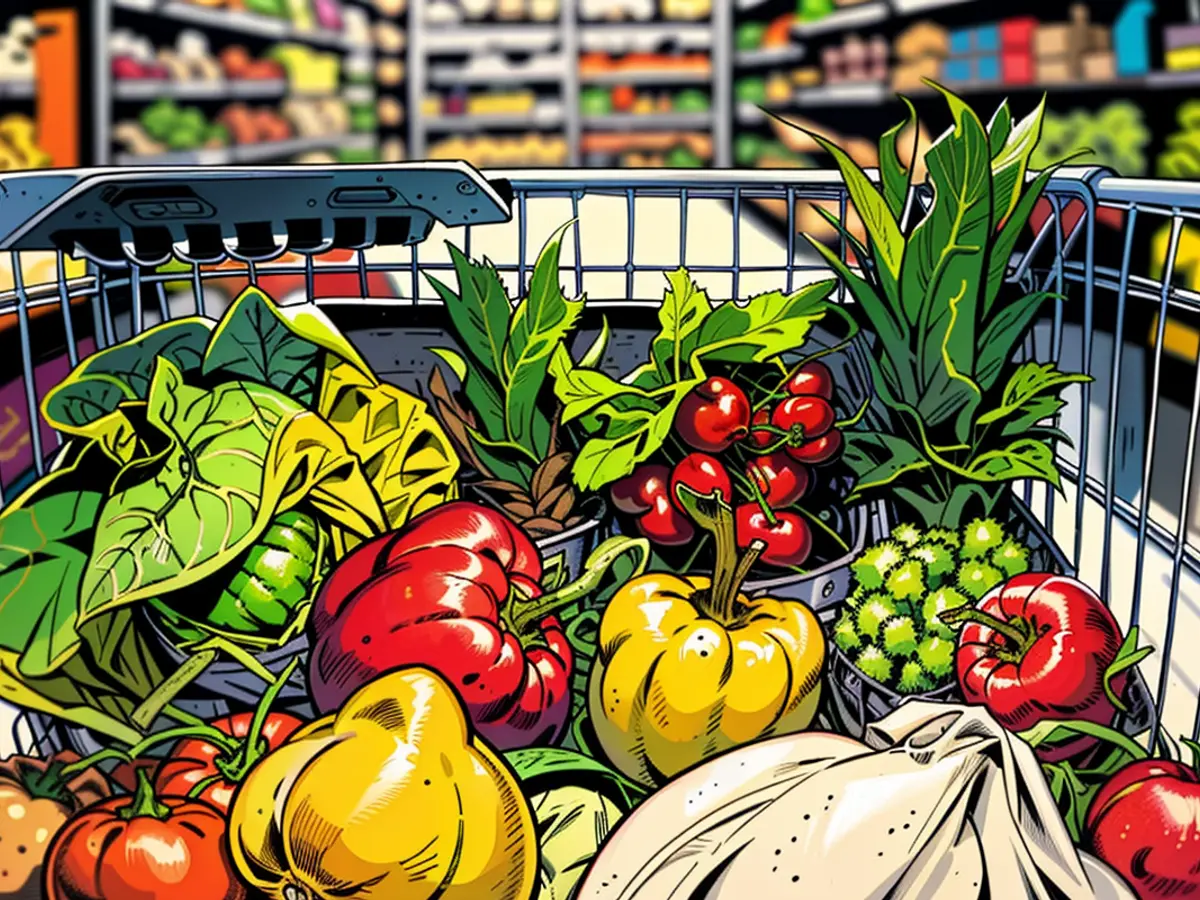- Prices for consumer goods experienced a decelerated increase in August.
For the first time in over three years, Germany's inflation rate dipped under the 2% threshold in August. Consumer prices climbed at a yearly rate of 1.9%, the slowest growth since March 2021, according to initial data from the Federal Statistical Office.
Energy costs decreased by 5.1% compared to last year, while service prices increased above average by 3.9%. Car insurance prices surged by more than a quarter, while prices for social services (+7.8%) and accommodation (+6.7%) also saw significant hikes. This can be partially attributed to increased wages for workers.
Food prices rose by only 1.5% compared to the previous year, but certain items like olive oil (+35.0%) became significantly more expensive due to poor harvests in Mediterranean countries. Sweets such as honey, jam, sugar, and other confectionery also increased by 5.0%. However, dairy products remained cheaper than the previous year.
The impact of high inflation rates on consumers over an extended period appears to be lessening. In July, consumer prices increased by 2.3%, following a 2.2% rise in June. Since March 2021, a lower inflation rate has not been recorded, and in August, prices were also 0.1% lower than in July. The core inflation rate, which excludes energy and food, dropped by 0.1 points to 2.8%.
If Germany's inflation and that of the eurozone as a whole continue to decrease, it would grant the European Central Bank the chance to decrease interest rates. In June, the ECB lowered interest rates for the first time since the inflation surge by 0.25 percentage points. In July, the ECB kept interest rates steady and hinted at a potential rate cut during its September 12 meeting. Market predictions suggest a rate cut. The estimated inflation rate for the eurozone was 2.2% for August.
Economists forecast the inflation rate to rise again by year's end due to base effects from the preceding year. Even if the inflation rate remains beneath 2% in September and October, the issue is not yet resolved, cautions Deutsche Bank Research economist Sebastian Becker. The ZEW economic institute in Mannheim also sees only a temporary success, but no groundbreaking progress towards price stability.
As per Nomura, a Japanese bank, market expectations for the extent and timing of potential rate cuts will escalate. However, growth driven by private consumption is not projected.
Inflation Update Destatis 8/2024
Despite the overall inflation rate decrease, foodstuffs like olive oil and sweet items such as honey, jam, sugar, and other confectionery experienced significant price hikes. Consequently, some consumers may still find it challenging to afford certain foodstuffs despite the overall decrease in inflation.








